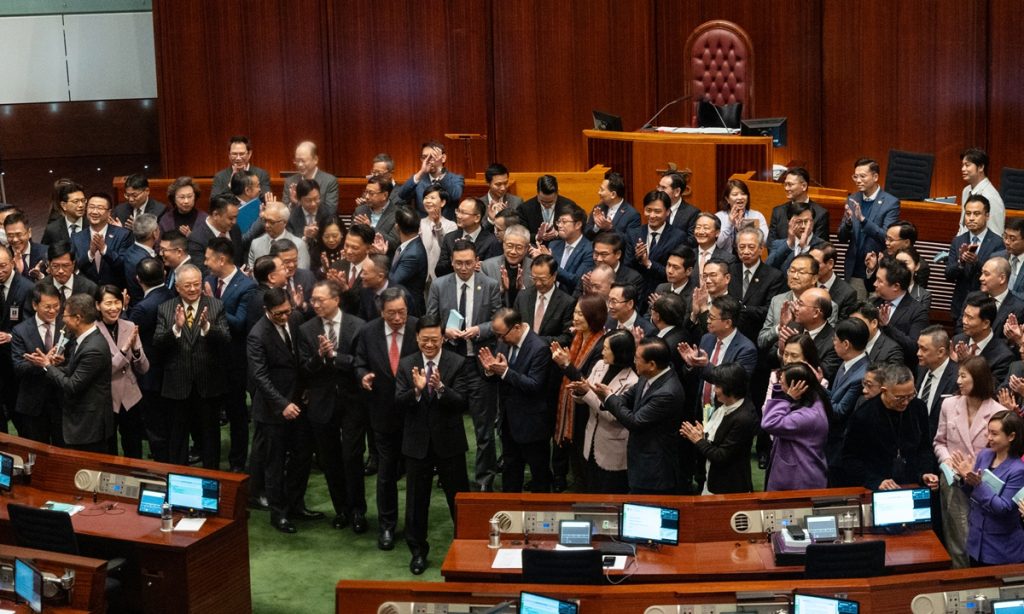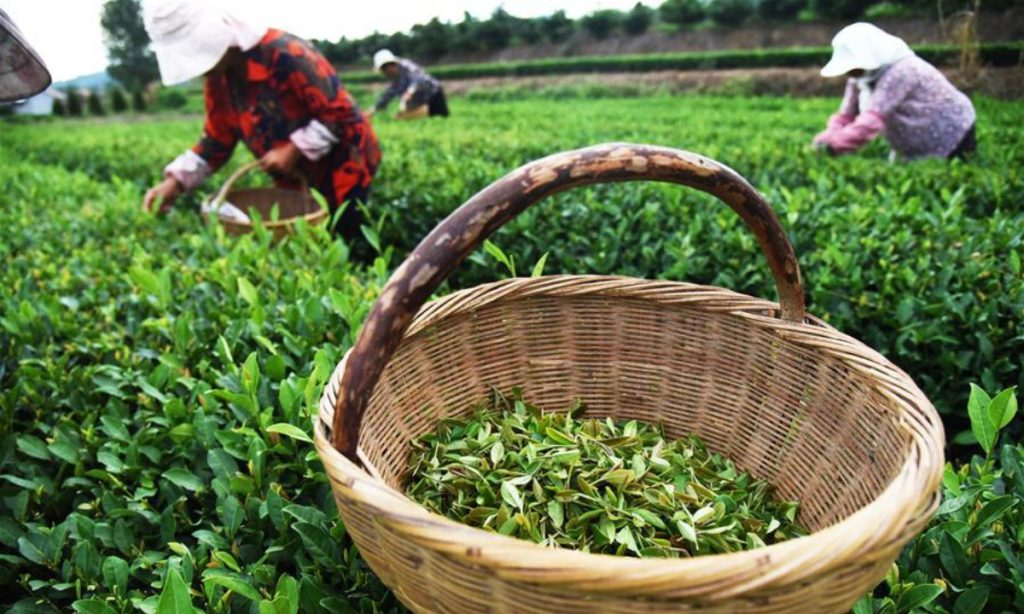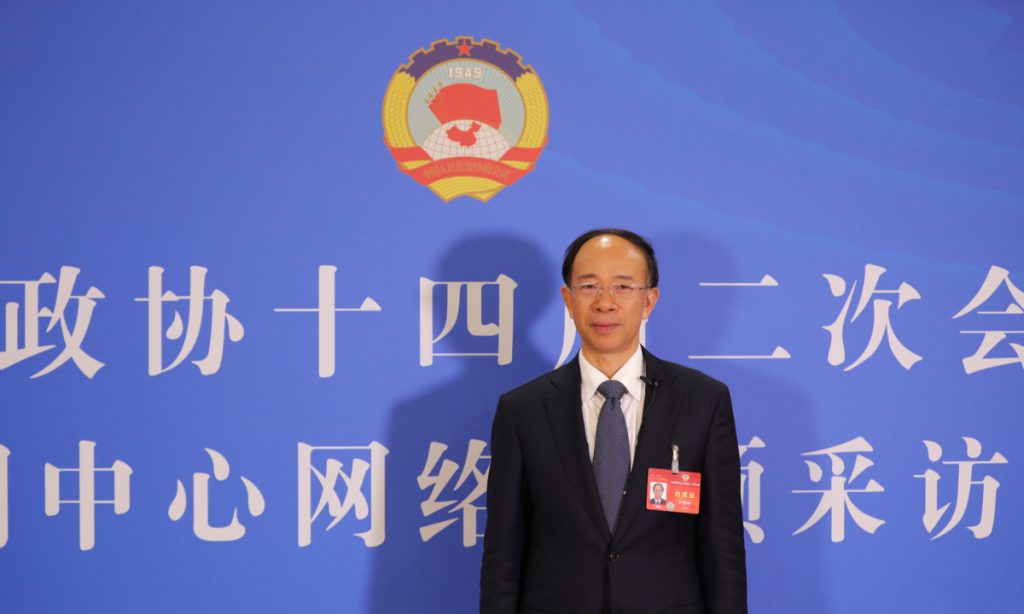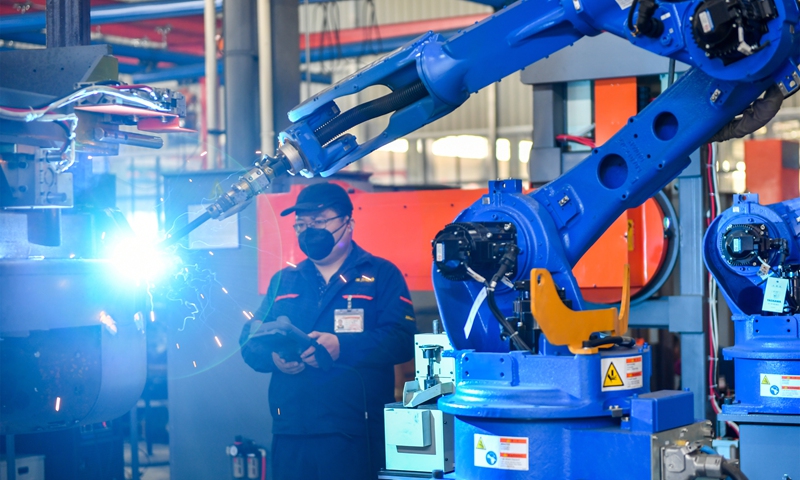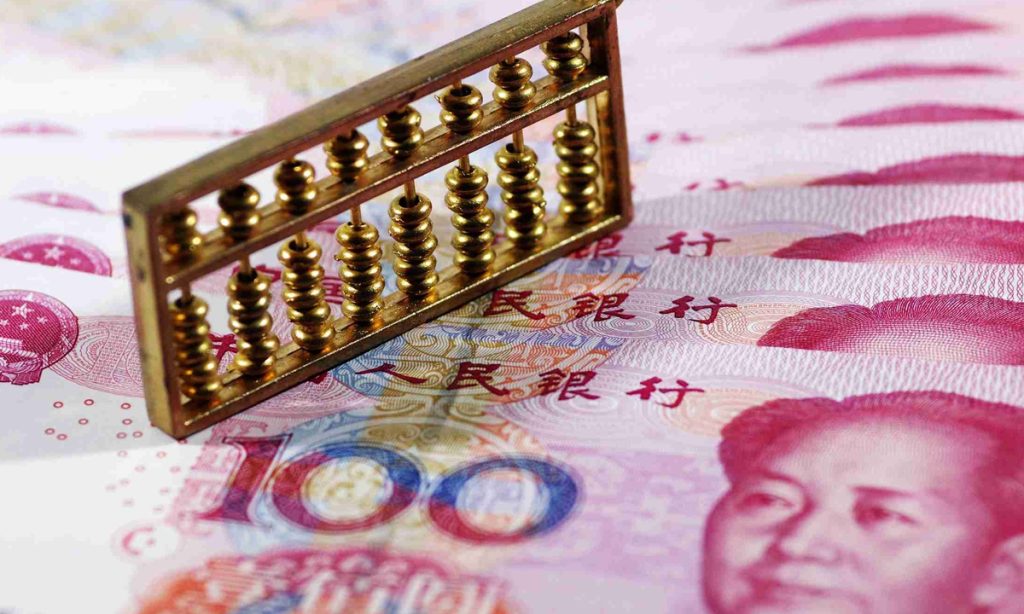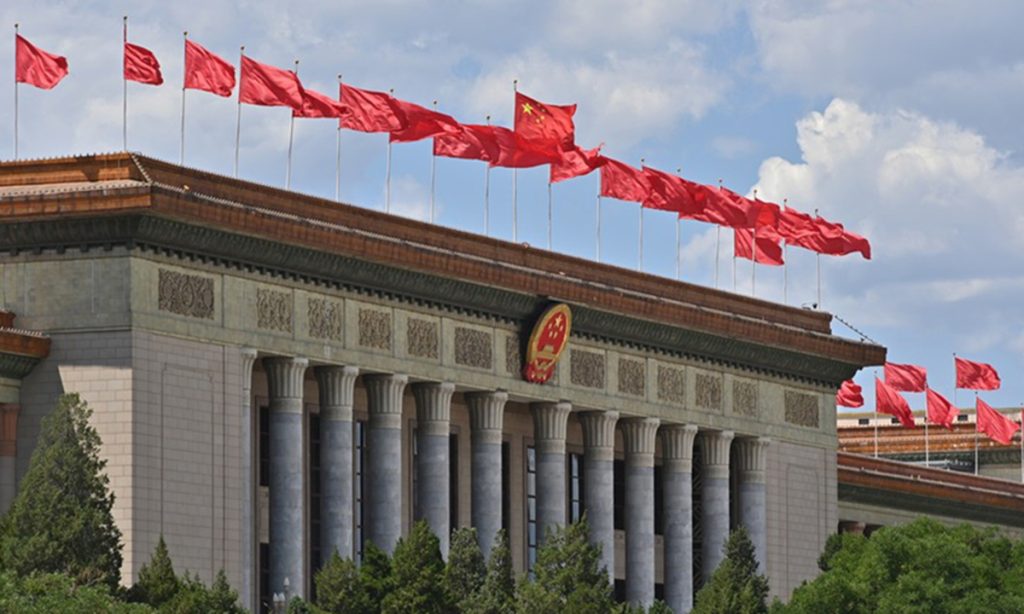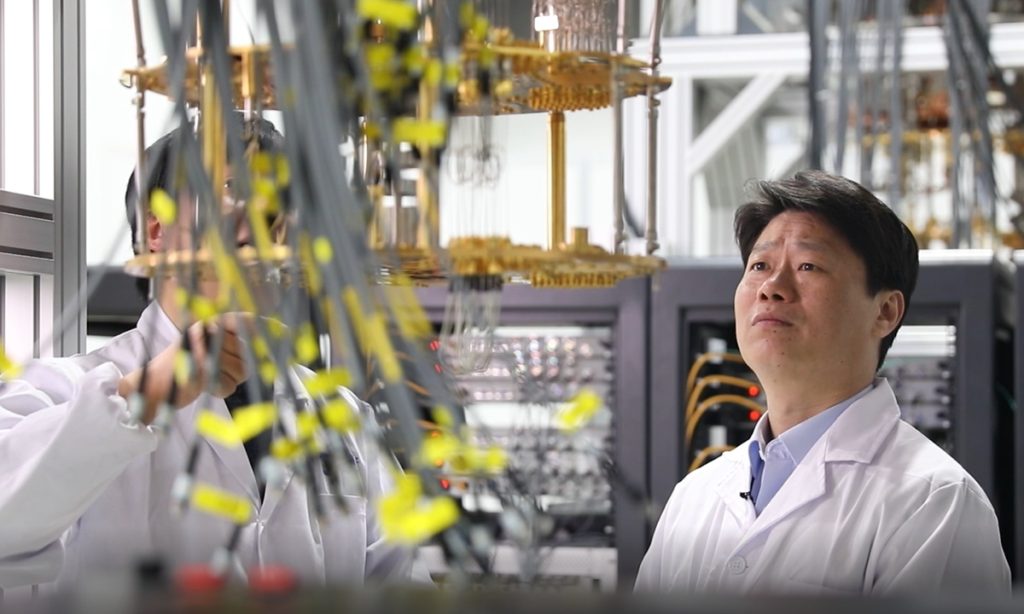Israel doesn’t have a clear strategy for what it wants to do in Gaza: former Palestinian negotiator

Editor's Note:
The total number of Palestinian deaths in Gaza has surpassed 10,000 since the latest round of Hamas-Israel conflict started on October 7, 2023, according to the Palestinian Health Ministry in Gaza. UN Secretary-General Antonio Guterres has urged for a humanitarian ceasefire amid the unfolding catastrophe in Gaza that grows more dire with each passing hour. Will a ceasefire be possible? How do external factors, such as unconditional US support of Israel, play into this conflict? What's the deadlock in the Palestinian-Israeli conflict? Global Times reporters Xie Wenting and Bai Yunyi (GT) spoke with Yezid Sayigh (Sayigh), former adviser and negotiator in the Palestinian delegation to the peace talks with Israel?and currently a senior fellow at the Malcolm H. Kerr Carnegie Middle East Center, and got answers to these pressing questions and more.
GT: Based on your understanding, what's the latest situation in the Gaza Strip, and particularly with regard to the humanitarian conditions and the impact on the civilians there?
Sayigh: There's a situation emerging of intense, immense human suffering for a civilian population of over 2 million people in front of the whole world. The humanitarian conditions are extraordinarily bad. The Israeli army has ordered about 1 million people to leave the north of the strip for the south. However, they are also bombing the south and have been bombing the border crossing with Egypt, which has prevented the arrival of humanitarian aid.
This is a situation of total terror for the civilian population in which Israeli instructions are contradictory. They are basically ignoring any sort of requirements to work with United Nations agencies and provide independent verification that international humanitarian law is being observed.
GT: The tragedy in the Gaza Strip did not start with the outbreak of this recent conflict. Could you tell us about what it has been like living in Gaza over these years?
Sayigh: The Gaza Strip is a tiny territory that measures about 45 kilometers long and between 9 and 15 kilometers wide. It is a densely populated area with 2.25 million people. The water they rely on for drinking comes from underground sources. However, Israel has been diverting a significant portion of this water, leading to the intrusion of seawater into the aquifer beneath Gaza, polluting the water that people use for washing and drinking. I started with this dramatic example to illustrate the challenging living conditions faced by Palestinians in Gaza.
The Israelis, although not physically present on the border, insist on certain security protocols. This means that the siege of Gaza is, in fact, entirely controlled by Israel, with 100 percent authority. Israel has maintained a regime of control, exemplified by the limited supply of fuel. They justify this restriction by claiming that the lack of it would aid Hamas and other organizations.
However, the cruelest manifestation of Israeli control is their scientific calculation of the daily caloric needs of each person to survive. They restrict the food supply to match their calculated scientific requirements for the 2.25 million people in Gaza. Thus, no more food can enter Gaza than what Israel deems necessary based on these calculations.
This extraordinary form of control can be seen as a scientific occupation, highlighting the nature of Israeli dominance over Gaza. This is why people call it an open air prison and it's a prison where they don't have much room to run away and go somewhere else if there is bombing and fighting.
GT: Do you think this conflict will continue to escalate and expand? Will it potentially evolve into a larger, even more comprehensive war? If that happens, what does it mean for the region and the world?
Sayigh: In the immediate term, there will be escalation. There already is escalation. Israeli forces on the ground, including commandos, have conducted limited ground operations in different parts of the north and the center of the Gaza Strip in the last few days.
What I think is really important here is that behind all the talks, the bombing, all the drama, and the thunder of bombs, if you look carefully, it seems pretty evident that until at least very recently, the Israeli government didn't actually have a clear strategy for what it wants to do in Gaza. They don't have an idea of the political end result. So, they talk about destroying Gaza. They talk about destroying Hamas.
Israel has even called, in public, for the killing of every single member of Hamas. This could be 30,000 to 50,000 people, and maybe even more people if we count all the members. But this is just talk for the domestic constituency. All of this doesn't necessarily mean that the Israeli leadership has an actual clear plan. They don't know that even if they achieve full victory as they define it, they will still have about 2.3 million Palestinians living in the Gaza Strip in horrific conditions, which were already bad.
There isn't a long-term political goal that produces stability in Gaza. What I fear here is that we are faced with a right-wing movement in Israel, which is actively pushing an ultra nationalist, far right agenda in the West Bank and East Jerusalem every day, with Israeli government's support.
GT: How do you evaluate the role of the US in the conflict?
Sayigh: I think Joe Biden is implementing a complex political strategy, but I do not think he is sufficiently dedicated to finding a genuine political solution to the Israeli-Palestinian conflict and achieving Palestinian statehood. I do not believe he is fully committed to compelling current or future Israeli governments to provide the necessary territorial and political freedom.
What Biden recently said is intriguing, where he acknowledges the necessity of making a serious effort to restore a political solution and rebuild the possibility of a two-state solution, with a Palestinian state alongside Israel. However, I don't believe he will invest enough political capital to make this happen. It's too late, and unfortunately, I don't think the Israelis, Americans, Palestinians, and others are in a position to reach an agreement in six months, or even a year or two that would lead to Palestinian statehood and self-determination.
Biden's remarks are simply the realization that the only logical outcome is to find a solution that works for Gaza. The only logical political solution for Gaza requires a political solution that includes the rest of the occupied Palestinian territories and provides Palestinian statehood for all Palestinians. In other words, there is no solution for Gaza alone.
What Biden will not do, in the meantime, is push for a ceasefire. This is partly because he and other Western leaders want to demonstrate their total support for Israel for their own domestic political reasons. Therefore, they are willing to see the weakening of the international order and international law for their domestic political reasons.
Additionally, I feel that Biden, in particular, is conducting a complex political strategy. By embracing Israel wholeheartedly and giving them unconditional political and military support, he is allowing Israel to conduct a very vicious bombing campaign that is killing thousands of Palestinian civilians. He may not want this, but he's not going to stop the Israelis from doing it. Partly, I think, in order to prevent the more far-right and right-wing Israelis from escalating the situation and avoiding accountability for their own political failures.
Biden is trying to give Israel a lot of leeway and freedom of action in Gaza, but at the same time, he wants to restrain them from expanding the war with Hezbollah and Iran, or expelling millions of Palestinians to Egypt and Jordan, which would undermine the entire architecture of American ties with the rest of the Arab world. So Biden is working on both goals, allowing Israel a lot of freedom but also trying to restrict its freedom in other areas.
GT: Do you think there is still room for a ceasefire? What are the obstacles preventing a ceasefire?
Sayigh: There will not be one until the Israelis feel they have achieved their goals. However, since the Israelis don't really know what their goals are, it will be a long time before a ceasefire happens because they don't want to stop fighting without achieving visible objectives. They also fear that accepting a ceasefire without achieving their goals will make them look weak and face dissent within their own society. Besides, the Israeli military command feels that their belief in their superiority and deterrence was destroyed by Hamas on October 7, and they want to restore the confidence of the Israeli public in the superiority of the Israeli army.
Both the political leadership and the military command of Israel, for different reasons, do not want to stop the fighting until they feel they have restored their political position, protected themselves from accountability, and restored their strategic deterrence.
GT: You were once a negotiator for Palestine in the Israeli-Palestinian negotiations. Over the years, the Israeli-Palestinian issue has been in a prolonged deadlock and even been marginalized. What do you think are the reasons behind this?
Sayigh: In the early 1990s, it became possible to initiate a direct Israeli-Palestinian peace process, wherein the governments of Israel and the Palestine Liberation Organization (PLO) recognized each other and established a new form of political dialogue that was previously unattainable. This possibility arose due to significant changes in the international and regional order. The end of the Cold War, the dissolution of the Soviet Union, and the emergence of US hegemony played crucial roles. So, at the international level, the global order has changed.
At the regional level, the regional order has also changed. Besides, domestically in Israel, the arrival of hundreds of thousands of Soviet Jews strengthened the Labor Party for a short period of time. Among Palestinians, the rise of Hamas challenged the leadership of PLO leader Yasser Arafat and the nationalist mainstream movement, Fatah. Therefore, domestically, regionally, and internationally, all these factors pushed for the PLO leadership and the Israeli leadership under the Labor Party to find room for a peace deal and to prefer it over other alternatives.
However, since the collapse of the peace process in the year 2000, the international order has returned to one of multipolar rivalry. Even at the regional level, we have witnessed a new type of cold war between different Arab states, between Iran and some Arab states, and between Turkey and the Saudis, as well as Turkey and Egypt.
We are currently experiencing very negative international and regional dynamics. Moreover, the right-wing faction in Israeli politics has gained dominance, opposing the establishment of a Palestinian state. We are also facing a very negative international environment in which Western powers have abdicated their role in forcing the increasingly right-wing Israeli government to pursue peace.
I fear that there is no return to a meaningful political negotiation process. I'm afraid that we need to wait for many years, perhaps 10, 20, 30, or even 50 to 60 years, before the Palestinians can hope for a genuine offer of independence. This offer could either involve them becoming full equal citizens of the State of Israel, which controls the entire territory, or having their own state where they can live in freedom and dignity. Unfortunately, I do not foresee either of these outcomes happening in the rest of my life.
GT: China has been making efforts to facilitate a political settlement to this conflict. How do you evaluate the role of China?
Sayigh: In relation to Gaza and Palestine, China has always maintained a principled position of support for Palestinian national self-determination. China was one of the very first countries, and perhaps the very first non-Arab country, to receive a delegation of Palestinian national leaders, including Yasser Arafat and a delegation of the Palestine Liberation Organization, in 1964 and 1965. This occurred before any other country had recognized the Palestinians. Therefore, China has a long-term position that can be beneficial in the current situation. However, the challenge lies in translating this position into political influence.
China's options are somewhat limited, but there are some useful actions it can take. One such action is diplomatic engagement. It is crucial for China to maintain a consistent and proactive stance at the United Nations, supporting humanitarian law, advocating for humanitarian aid to Gaza, urging for a ceasefire, and aligning with other UN members in pressuring the United States, its allies, and the Europeans to adopt positions that adhere more closely to international law.
